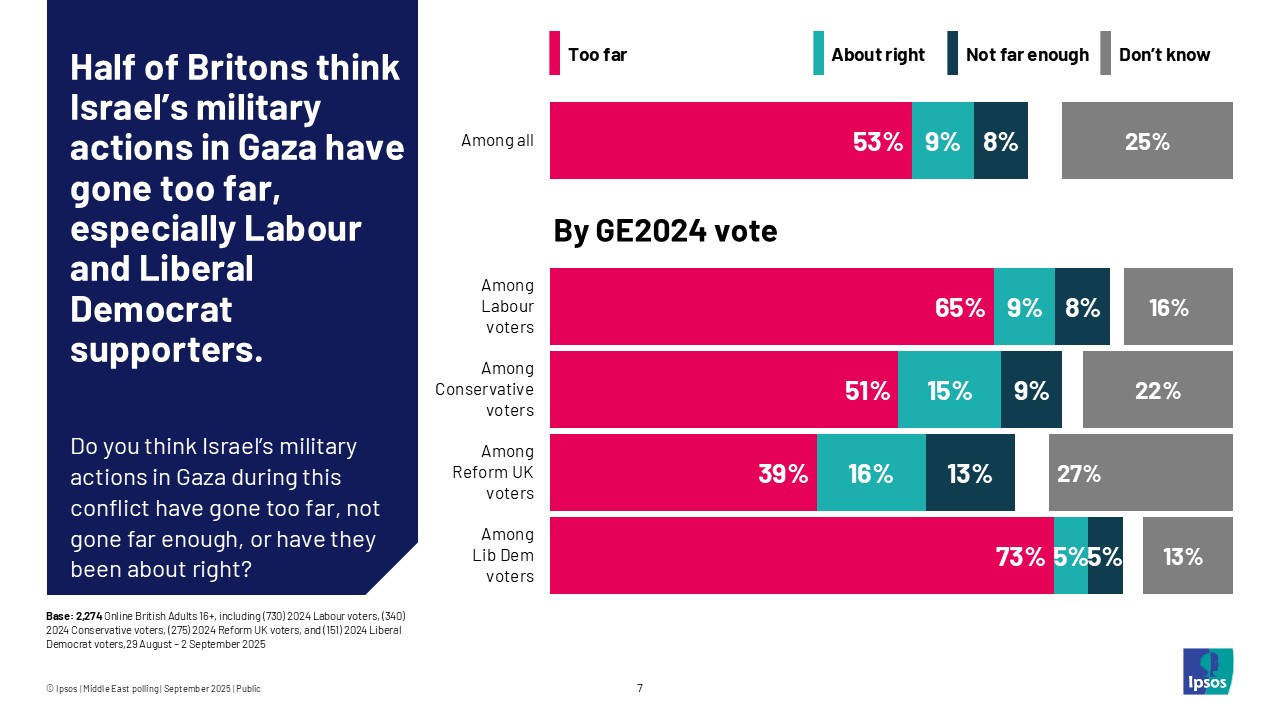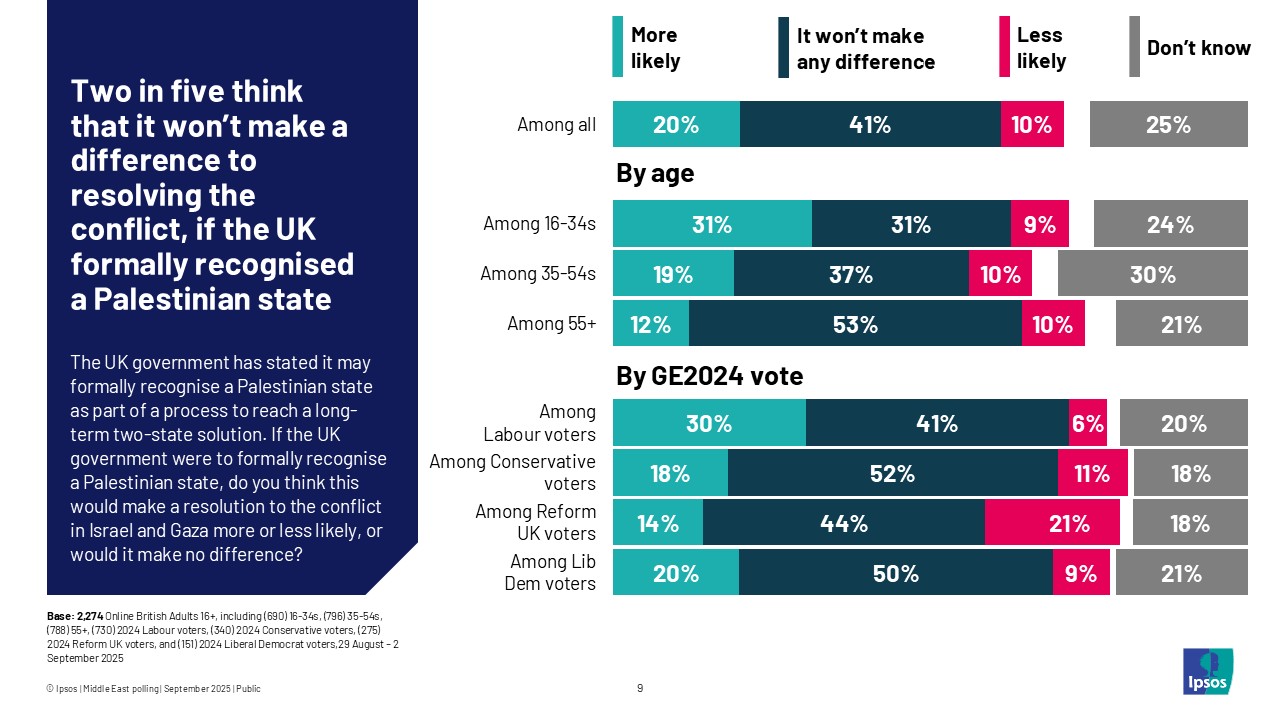Ipsos poll on British attitudes towards the conflict in Israel and Gaza
Ipsos in the UK has released its latest polling about the Middle East, capturing concerns and perspectives among British adults regarding the ongoing conflict in Israel and Gaza. The findings reveal significant concerns about the conflict's impact and highlight public opinion on Britain's diplomatic role.
Key findings
- Military operations: Half (53%) of Britons think Israel's military actions in Gaza have gone too far. Liberal Democrat (73%) and Labour (65%) 2024 voters are most likely to hold this view, while Reform UK voters (39%) are least likely.

- Responsibility for the conflict: 45% of Britons say that the Israeli government has a great deal of responsibility for the current conflict, while a similar proportion (40%) name Hamas. Other actors identified as having a great deal of responsibility include the Palestinian Authority (21%) and the United States (21%), while a quarter (24%) don’t know. When combining those who only chose one option at this question with those who chose two or more and were asked a follow-up, “who do you think is most responsible?”, a third of Britons (32%) say they don’t know if only choosing one actor (23% say the Israeli government, 20% say Hamas).
- High level of concern: Seven in ten (69%) Britons express concern about the impact of the conflict in Israel and Gaza on regional stability within the Middle East, while two in three (66%) worry about the plight of Palestinian civilians. 63% are concerned about UK national safety and security, while 62% are concerned about community relations in the UK. Half (50%) say they are worried about the impact of the conflict on Israeli civilians, while 37% say they are worried about the impact on themselves.
- Government response: 46% say that the UK government has done a bad job responding to the conflict. Reform UK voters are most critical (67% bad job), while Labour voters are split 30% good job vs 35% bad job. Half (49%) say Prime Minister Keir Starmer has done a bad job.
- Neutral mediator: A third (33%) of Britons think the UK should act as a neutral mediator in the conflict, 18% believe the UK should not be involved at all. 19% say the UK should support the Palestinians, while 7% say the UK should support Israel.
- Recognition of a Palestinian state: 44% of Britons believe that the UK government should recognise Palestine as a country (while only 13% disagree). However, 41% say it would not make any difference to resolving the conflict.

Commenting on the findings, Gideon Skinner, Senior Director of UK Politics at Ipsos said:
Our latest polling on the Middle East shows that many Britons express significant concerns about the military operations in Gaza, and the conflict’s impact both in the Middle East itself on regional stability and civilians there (especially in Palestine), and at home for UK national security and community relations. The data also demonstrates a nuanced perspective on responsibility, where both the Israeli government and Hamas are largely seen as accountable (and with many simply unsure where ultimate responsibility lies), albeit with many clearly concerned about the extent of Israeli military action.
When it comes to the UK’s role, there’s a sense that the government hasn’t quite got the balance right, with half critical of the way it is handling the situation and even Labour voters split on its performance. However, the public themselves are not unanimous about what this should look like, although their view tends towards a mediation role, accompanied by plurality support for the recognition of Palestine as a country - but with scepticism that this will have a significant impact on resolving the conflict.
Technical note:
- Ipsos interviewed a representative sample of 2,274 adults aged 18+ across Great Britain. Polling was conducted online between the 29th of August to 2nd of September 2025.
- Data are weighted to match the profile of the population. All polls are subject to a wide range of potential sources of error.



